We’ve had a wild ride so far in this season of monitoring Piping Plovers on the Outer Cape. Between the fluctuating cold then hot weather, failing nests, and the return of our very own banded bird, it has been very interesting.
The chilly days of late April and early May have been a little tough on plover monitors but not too bad for our nesting birds.
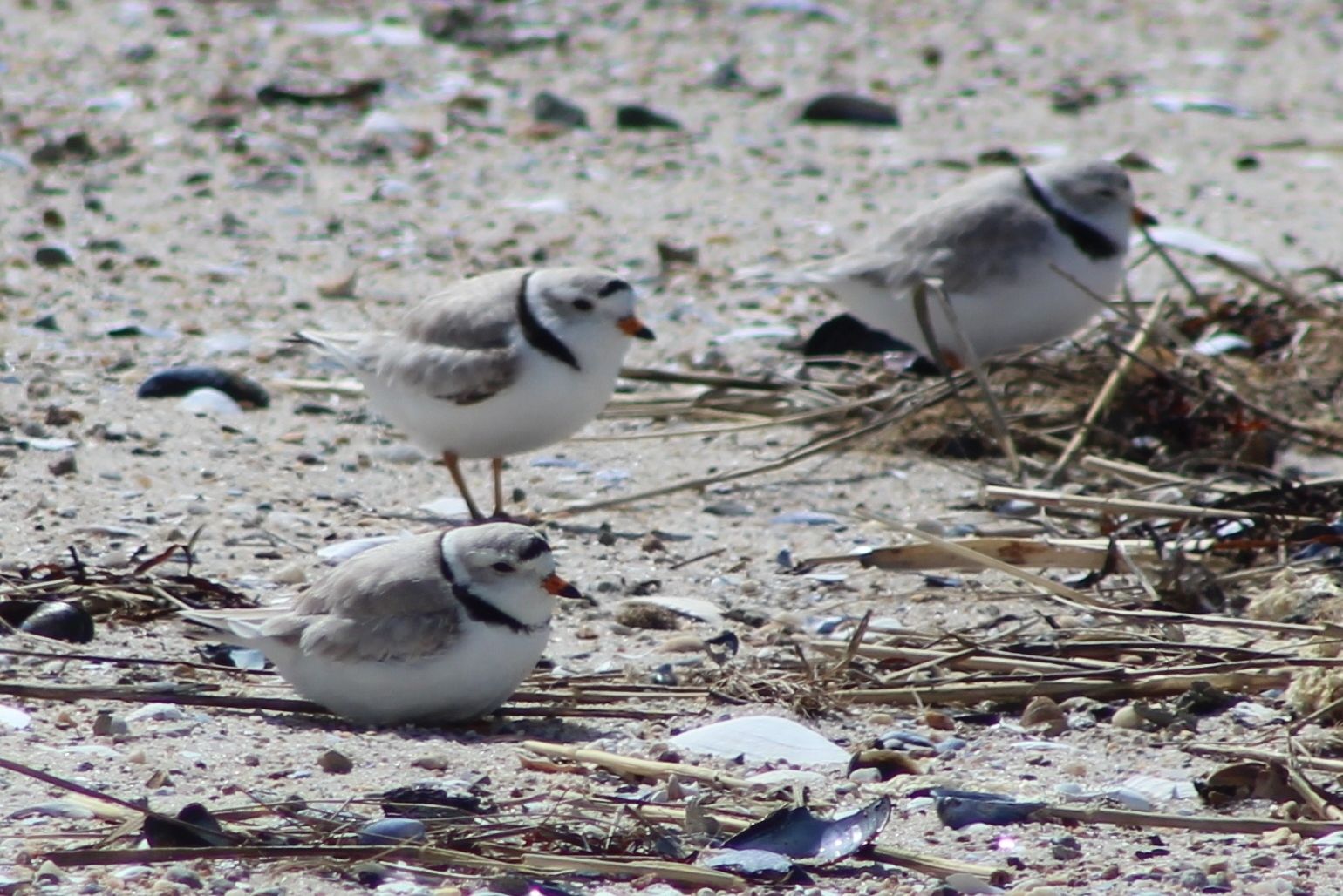
Three Piping Plovers hanging out enjoying the break from the blustery winds in their safe inlet in Chatham. (Photo by Nicole Gallup)
If the birds are kept off the nests, the cool temperatures would only delay the development of the eggs that we have in nests on a couple of our beaches. Though it’s not ideal to think about delaying hatching and fledging of chicks later into summer on Cape Cod, it is better than the alternative. Those few days in mid-May that had temperatures well into the 80s could have been disastrous for our pairs with eggs. If left uncovered in the blazing sun, even for a few minutes, the eggs can fry. That is why it is especially important to not disturb nesting plovers on hot days.
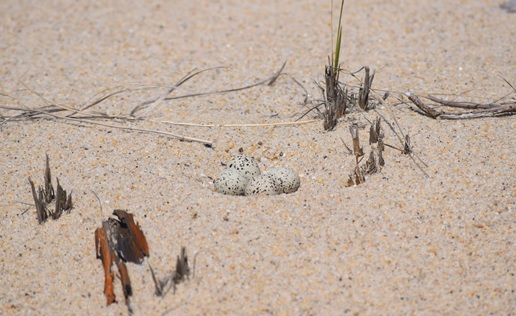
A Piping Plover nest that has four eggs is ready for incubation. Plover chicks hatch within a couple of hours of one another and are running around the beach shortly thereafter, feeding on their own. (Photo by Olivia Bourque)
So far this season, we’ve lost three nests, one of which was just days from hatching. Depredation was likely the cause of two of those lost nests, both done in by crows. Crows are very intelligent creatures and have been known to watch humans watch plovers and find the nest, or follow plovers back to their nests and then eat the eggs. The third nest was lost to the high tide during a stormy weekend, another common cause of nest loss.
Although we get almost as invested in the nesting as the birds do, there is still hope for plovers who lose nests. Piping plovers can renest up to four times, and they tend to learn from their mistakes and nest in better areas than before.
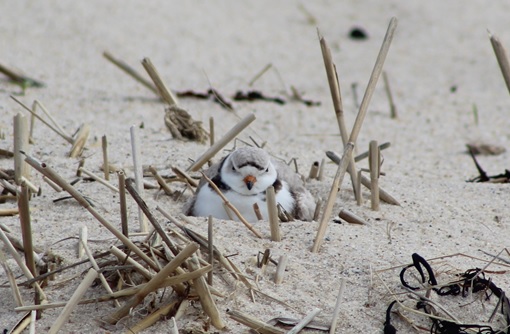
This is what determination looks like when you have to incubate your eggs for almost a month (Photo by Nicole Gallup)
Adding special interest and much speculation to this season is the return of “El Bandito”, a banded plover we’ve monitored for five summers in a row (see Where in the World is Bandito? ).
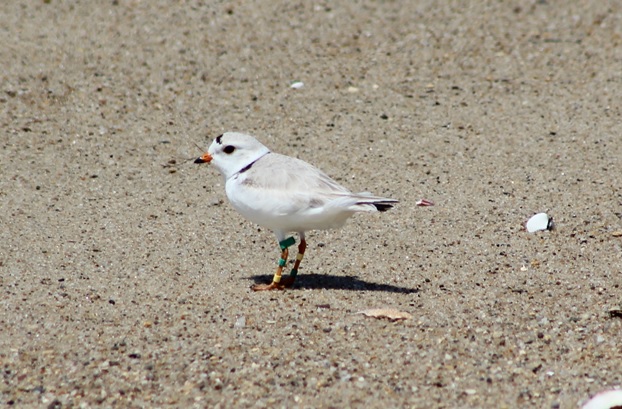
El Bandito–known for his green and yellow leg bands. (Photo by Nicole Gallup)
Although in recent years, Bandito’s had some nesting success, something’s off this year. He appears to be having lady troubles. He’s been spotted at several beaches in Eastham and Brewster, most of the time alone. He has been seen with two different birds performing courtship rituals, which has led us to believe he had two shots at finding a mate. The amount of effort this guy has put into finding a female is curious to us. Having tracked Bandito for a number of years, we know he’s had mates and fledged young before. Did he lose his last one over the winter? Or did they agree to split up at the end of last summer? Is his singleness a comment about his choice of territory…or was it something he said?
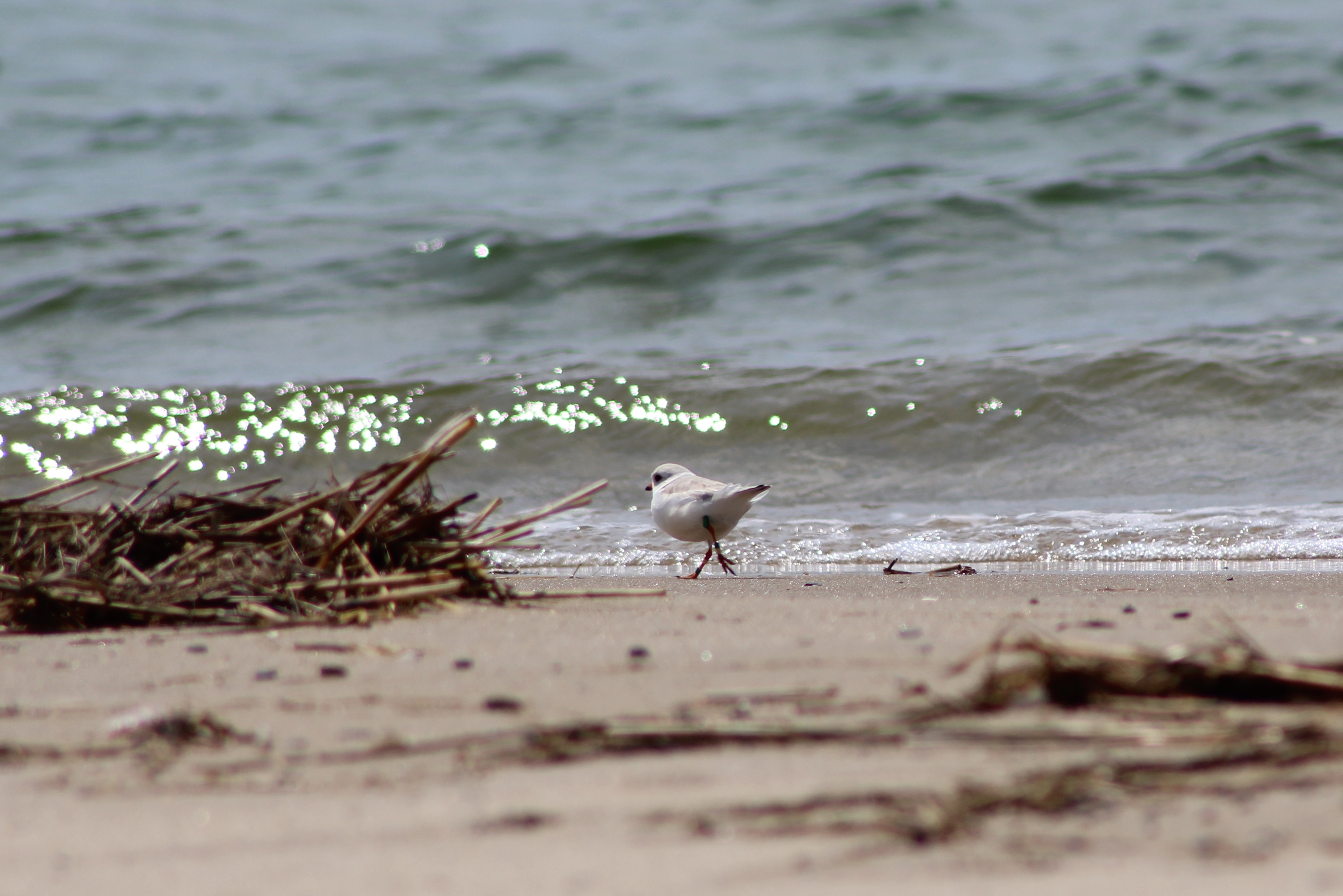
Bandito patrols his Eastham beach. (Photo by Nicole Gallup)
We’re really hoping this is just an off year for Bandito and–like any Piping Plover–he’ll live to breed another day. And we’re wishing all the birds on our watch as much luck as they can get this season.
This post was contributed Wellfleet Bay coastal waterbird field technicians Nicole Gallup and Olivia Bourque. While we have fun speculating about El Bandito’s ups and downs, banded birds provide rare insights into an individual bird’s breeding history. National Audubon recently posted an article about a banded plover in the Great Lakes that has also contributed a lot of information about Piping Plover ecology and life history.


Thanks for your vigilance – and I like his name!
This article was both informative and fun to read. Mating science with a sense of humor is a sure way to attract interest. Especially so with the high emotions associated with plover nesting and beach goers!
Terrific blog on PIPLs. Great job, Nicole and Olivia.
MPOC
Lincoln HQ